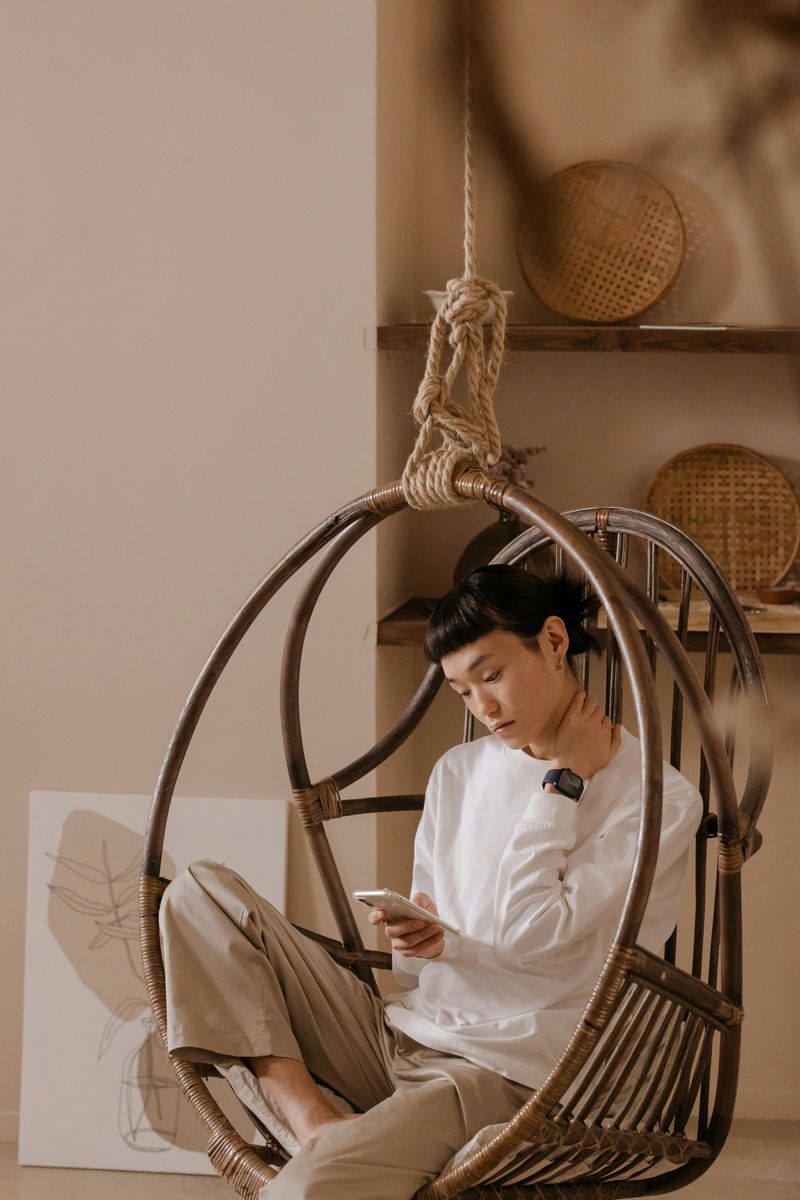If Your Wife’s Suddenly Doing These 13 Things, Your Marriage Is at Risk

Marriage is full of ups and downs, but some changes in behavior can signal deeper problems. When your wife suddenly starts acting differently, it might be easy to ignore or chalk it up to stress. However, certain patterns could mean your relationship is heading toward trouble, and recognizing them early can make all the difference.
1. Hanging Out With Unhappily Married Friends

Your wife might be spending more time with friends who constantly complain about their own marriages. Negativity spreads quickly, and being around people who focus on relationship problems can shift her perspective.
Instead of seeing what works in your marriage, she may start noticing only what doesn’t. This influence can be subtle but powerful, slowly eroding her satisfaction.
Encourage time with friends who support healthy relationships instead. Open conversations about what she’s hearing and feeling can help you both stay connected and address concerns before they grow into bigger issues.
2. Scrolling Constantly on Her Phone

When she’s always glued to her phone instead of talking with you, something’s off. This constant scrolling can be a way to emotionally check out or avoid uncomfortable conversations.
She might be seeking validation or distraction through social media, texts, or apps. The more time spent on screens, the less time invested in real connection with you.
Try suggesting phone-free times together, like during meals or before bed. Ask her what she’s interested in online and show genuine curiosity. Rebuilding face-to-face connection takes effort, but it’s worth it to bring back the closeness you once shared.
3. Working Overtime

Extra hours at work might seem like dedication to her career, but it can also be an escape. When home life feels stressful or emotionally difficult, staying late at the office becomes a convenient way to avoid those feelings.
Work provides structure, accomplishment, and distance from relationship tension. If this becomes a regular pattern, it’s worth paying attention to.
Talk openly about her workload and stress levels without being accusatory. Offer support and find ways to make home a place she wants to be. Balance is key, and understanding her motivations can help you address what’s really going on beneath the surface.
4. Staying Up Later Than Normal

She used to come to bed with you, but now she’s staying up long after you’ve turned in. Late-night hours alone can signal she’s avoiding intimacy or simply doesn’t want to share that time anymore.
Maybe she’s watching shows, reading, or scrolling aimlessly. Whatever the activity, it’s taking priority over being close to you. This growing emotional distance often starts small but builds over time.
Ask her what’s keeping her up and if there’s something bothering her. Creating a comfortable bedtime routine together can help restore that lost connection and remind her why sharing those quiet moments matters.
5. Planning Long Solo Trips

Wanting personal space is healthy, but when she starts planning extended trips without you, it raises questions. Solo travel can represent a desire for independence or even a mental rehearsal of life apart.
She might be craving freedom or testing what it feels like to be on her own again. These trips can provide clarity, but they can also create more distance between you both.
Instead of reacting defensively, ask what she hopes to gain from traveling alone. Suggest planning a trip together too, so you can reconnect and create new memories. Understanding her need for space while staying connected is a delicate balance worth working toward.
6. DMing Old Flings and Partners

Reconnecting with people from her romantic past is a red flag that shouldn’t be ignored. When she starts messaging old boyfriends or flings, it often means she’s seeking excitement, validation, or nostalgia that’s missing at home.
These conversations might seem innocent at first, but they can quickly become emotionally charged. She may be comparing her current life to what could have been.
Have an honest conversation about boundaries and what reconnecting with exes means to both of you. Rebuilding the spark in your marriage takes intentional effort, but it’s far better than letting old flames reignite feelings that threaten what you’ve built together.
7. Obsessively Cleaning

Cleaning is normal, but when it becomes an obsession, it’s often a coping mechanism. She might be channeling stress, anxiety, or frustration into scrubbing floors and organizing closets.
Controlling her environment gives her a sense of power when emotional life feels chaotic or out of control. This fixation can be exhausting for her and confusing for you.
Gently ask if something’s bothering her and offer to help with tasks or just listen. Encourage her to take breaks and relax instead of constantly tidying. Addressing the underlying stress together can help her feel more secure and less driven to control every detail around her.
8. Writing in a Secretive Journal

Keeping a diary isn’t unusual, but when she hides it or gets defensive about it, something deeper is happening. She’s processing thoughts and feelings she’s not ready to share with you yet.
Journaling can be therapeutic, but secrecy suggests she’s emotionally withdrawing. She might be working through doubts, frustrations, or plans she’s not comfortable discussing openly.
Respect her privacy but create opportunities for honest communication. Let her know you’re available to listen without judgment whenever she’s ready. Building trust and openness takes time, but it’s essential for keeping your marriage strong and preventing emotional walls from growing taller between you both.
9. Avoiding Couples Photos

She used to love taking pictures together, but now she refuses or makes excuses. Avoiding couples photos can signal embarrassment, detachment, or a desire to appear single to others.
Social media presence matters to many people, and not wanting to be seen as part of a couple is telling. She might be mentally distancing herself or keeping options open.
Ask her directly why she’s uncomfortable with photos and listen to her answer. Suggest taking pictures just for yourselves, not social media, to ease the pressure. Rebuilding her pride in your relationship starts with understanding what’s changed and working together to restore that connection and joy you once shared.
10. Using Her Maiden Name

Going back to her maiden name socially or professionally is more than just a preference. It can represent reclaiming her identity or taking a mental step toward separation.
Names carry meaning and symbolism, especially in marriage. When she chooses to use her pre-marriage name, it might signal she’s rethinking her commitment or imagining life independently.
Talk openly about what prompted this change and what it means to her. Avoid being accusatory and instead focus on understanding her feelings. Identity is personal, but in marriage, these decisions affect both partners. Working through this together with honesty and respect can help clarify where you both stand and what comes next.
11. Drastically Changing Her Appearance

Major transformations in hairstyle, wardrobe, or overall look can reflect deeper internal changes. While self-expression is healthy, sudden drastic shifts often signal she’s seeking a fresh start.
She might be reinventing herself or trying to recapture feelings of youth and freedom. These changes can be exciting but also indicate dissatisfaction with her current life. Compliment her new look and ask what inspired the change. Show interest in her journey without judgment.
Sometimes a makeover is just a makeover, but other times it’s a symptom of wanting something more. Understanding her motivations helps you stay connected through transitions and shows you care about who she’s becoming.
12. Spending Excessive Time on Self-Improvement

Personal growth is important, but when she’s constantly attending workshops, retreats, or self-help groups without including you, it’s concerning. This focus on finding herself can become a way to emotionally withdraw from the marriage.
She might be preparing mentally for life on her own or seeking fulfillment outside your relationship. Excluding you from this journey creates distance and suggests she’s moving forward without you.
Express interest in her growth and ask how you can support her goals. Suggest activities you can do together that promote growth for both of you. Marriage thrives when partners grow together, not apart, so finding common ground is crucial for keeping your bond strong.
13. Rekindling Old Friendships While Excluding Her Spouse

Reconnecting with people from her past is natural, but deliberately leaving you out of new social plans is a warning sign. She’s creating emotional distance and redefining her identity outside the marriage.
These friendships might remind her of who she was before marriage, and she may be testing what independence feels like again. Excluding you sends a clear message that she’s building a separate life. Ask to meet her friends and show genuine interest in these relationships.
Suggest hosting gatherings together so you can be part of her social world. Feeling excluded hurts, but opening communication and finding ways to connect with her circle can help bridge the gap and remind her that partnership means sharing experiences.

Comments
Loading…